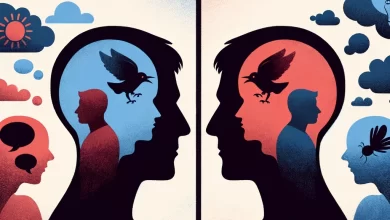Anxiety Relief Products: Finding Peace in the Midst of Chaos

Understanding anxiety and its impact on daily life
Anxiety is something a lot of us deal with, and it affects millions of people all over the world. Finding the right anxiety relief products can be a game-changer for managing those constant feelings of worry, fear, and nervousness. Anxiety often shows up with physical symptoms like a racing heart, sweating, and tight muscles, making everyday life a real challenge.
When anxiety gets too much, it can kill your productivity, mess up your sleep, and make it hard to connect with others. This is where the right anxiety relief products can really help, by providing tools to cope with and lessen the impact of anxiety. People dealing with anxiety might start avoiding certain places or activities, which can lead to a pretty limited lifestyle. Plus, anxiety can sometimes lead to other mental health issues like depression or substance abuse.
Understanding how deeply anxiety can affect your life is super important. By recognizing it and finding the right strategies, you can start to take control and feel better. The right products and coping methods can make a big difference, helping you get back to living your life without the heavy weight of anxiety.
Inhaler for anxiety : How they work and their effectiveness
Traditional inhalers deliver medication for respiratory conditions, but a new type of inhaler has emerged to manage anxiety. These inhalers use a blend of natural ingredients, like essential oils and herbal extracts, which many believe have calming and grounding effects on the mind and body.
The inhaler for anxiety works by delivering these soothing compounds directly into the nasal passages and lungs, allowing for rapid absorption into the bloodstream. This method of administration bypasses the digestive system, ensuring faster relief compared to oral supplements or medications.
Many users report experiencing a sense of relaxation and reduced anxiety symptoms within minutes of using the inhaler. However, it’s important to note that the effectiveness of these inhalers can vary from person to person, and they should not be considered a substitute for professional treatment or medication prescribed by a healthcare provider.
Anxiety scalloped tongue
While anxiety is primarily associated with psychological and emotional symptoms, it can also manifest in physical ways, including a condition known as “anxiety scalloped tongue.” This phenomenon refers to the development of scalloped or indented patterns along the edges of the tongue, often accompanied by a burning or tingling sensation.
The exact cause of anxiety scalloped tongue is not fully understood, but it is believed to be linked to the body’s stress response. When experiencing anxiety, the body releases hormones like cortisol and adrenaline, which can affect various bodily functions, including salivary gland production and muscle tension in the tongue.
In some cases, anxiety scalloped tongue may be a temporary condition that resolves once the underlying anxiety is addressed. However, in other instances, it can persist and become a chronic issue, potentially leading to further discomfort and difficulty with activities like eating or speaking.
If you experience anxiety scalloped tongue, it’s essential to consult with a healthcare professional to rule out other potential causes and explore appropriate treatment options, which may include stress management techniques, anxiety medication, or addressing any underlying medical conditions.
Somatic exercises for anxiety : A natural Managing approach
Somatic exercises for anxiety are a form of mind-body therapy that involve gentle movements and conscious awareness of physical sensations. These exercises aim to release tension and promote relaxation by fostering a deeper connection between the mind and body.
One of the key principles of somatic exercises is the recognition that anxiety and stress can manifest physically in the form of muscle tension, shallow breathing, and postural imbalances. By addressing these physical manifestations, individuals can potentially alleviate the mental and emotional aspects of anxiety as well.
Examples of somatic exercises include:
- Body scans: Systematically bringing awareness to different parts of the body and releasing any tension or tightness.
- Breath work: Practicing controlled breathing techniques to calm the mind and activate the relaxation response.
- Mindful movements: Engaging in slow, deliberate movements while maintaining present-moment awareness.
Incorporating somatic exercises for anxiety into your routine can provide a holistic approach to anxiety management. These practices not only promote physical relaxation but also cultivate mindfulness and self-awareness, which can be invaluable tools in navigating anxious thoughts and emotions.
Can low testosterone cause anxiety ?
While the relationship between hormones and mental health is complex, there is growing evidence suggesting a potential link between low testosterone levels and increased anxiety in both men and women, prompting the question: can low testosterone cause anxiety ?
Testosterone is a hormone that plays a crucial role in various bodily functions, including mood regulation and stress response. When testosterone levels are low, it can disrupt the balance of other hormones and neurotransmitters involved in anxiety and emotional well-being. So, can low testosterone cause anxiety ? Some research suggests it might.
Individuals with low testosterone levels may be more prone to experiencing symptoms of anxiety, such as excessive worry, irritability, and difficulty concentrating. Additionally, low testosterone has been associated with an increased risk of developing anxiety disorders, including generalized anxiety disorder (GAD) and social anxiety disorder.
It’s important to note that low testosterone is not the sole cause of anxiety, and other factors, such as genetics, life experiences, and underlying medical conditions, can also contribute to the development of anxiety disorders.
If you suspect that low testosterone may be contributing to your anxiety symptoms, it’s essential to consult with a healthcare professional for proper evaluation and treatment recommendations. Addressing hormonal imbalances, in conjunction with other anxiety management strategies, can potentially improve overall mental well-being.
Is Anxiety neurodivergent ? Exploring the intersection of mental health and neurodiversity
Neurodiversity recognizes that natural variations in brain function and cognitive processing should be respected and celebrated. People often view anxiety as a mental health condition, but there’s an ongoing discussion about considering it a form of neurodivergence, raising the question: is anxiety neurodivergent ?
Proponents of this perspective argue that anxiety is a natural and adaptive response to certain stimuli or situations, and it may have evolutionary roots in promoting survival and vigilance. From this viewpoint, asking is anxiety neurodivergent becomes a valid consideration, suggesting that anxiety is not necessarily a disorder but rather a different way of experiencing and navigating the world.
However, it’s important to note that severe or persistent anxiety that significantly impairs daily functioning and well-being may still require professional intervention and support.
Navigating anxiety couple: Strategies for supporting each other
When one partner in a relationship struggles with anxiety, it can impact the dynamic and overall well-being of the anxiety couple. Navigating anxiety as a couple requires open communication, understanding, and a willingness to support each other through challenging times.
Here are some strategies for couples navigating anxiety together:
- Educate yourselves: Learn about anxiety, its symptoms, and its potential triggers. Understanding the condition can foster empathy and help both partners develop realistic expectations.
- Establish open communication: Create a safe space for both partners to express their feelings, concerns, and needs without judgment. Active listening and validation can go a long way in strengthening the bond.
- Identify triggers and coping mechanisms: Work together to recognize situations or events that may trigger anxiety for the affected partner. Develop personalized coping strategies, such as deep breathing exercises, mindfulness practices, or seeking professional support.
- Practice self-care: Encourage each other to prioritize self-care activities that promote relaxation and emotional well-being. This can include exercise, hobbies, or simply taking breaks from daily stressors.
- Seek professional support: If anxiety becomes overwhelming or impacts the relationship significantly, consider seeking couples counseling or individual therapy. A mental health professional can provide valuable guidance and coping strategies.
Remember, supporting a partner with anxiety is a journey that requires patience, empathy, and a commitment to working together as a team. By fostering a supportive and understanding environment, an anxiety couple can navigate the challenges of anxiety and strengthen their emotional connection.
Top anxiety relief products on the market
In addition to traditional therapy and medication, there are various anxiety relief products available on the market that can complement your overall management strategy. Here are some top options to consider:
- Weighted blankets: These blankets, filled with glass beads or plastic pellets, provide gentle pressure that can promote a sense of calm and relaxation. Many users report improved sleep quality and reduced anxiety when using weighted blankets.
- Essential oil diffusers: Certain essential oils, such as lavender, chamomile, and bergamot, are known for their calming and stress-reducing properties. Diffusing these oils can create a soothing atmosphere and potentially alleviate anxiety symptoms.
- Anxiety journals: Writing down thoughts and feelings can be a powerful tool for processing emotions and gaining clarity. Anxiety journals often include prompts, exercises, and affirmations to help individuals manage their anxiety more effectively.
- Fidget toys: Fidget toys, such as stress balls, spin rings, or cube puzzles, can provide a tactile outlet for restless energy and help individuals stay grounded during moments of anxiety.
- Mindfulness apps: Various mobile applications offer guided meditations, breathing exercises, and mindfulness practices specifically designed to reduce anxiety and promote relaxation.
- Herbal supplements: While it’s essential to consult with a healthcare professional before taking any supplements, some herbal options, such as chamomile, valerian root, and ashwagandha, are believed to have anxiety-reducing properties.
Remember, these products should be used in conjunction with other anxiety management strategies and not as a substitute for professional treatment or medication prescribed by a healthcare provider.
If you’re struggling with anxiety and seeking relief, consider exploring our range of anxiety relief products. From weighted blankets to mindfulness apps, we offer a variety of options to complement your overall wellness journey. Take the first step towards finding calm and balance by visiting our website or contacting us for personalized recommendations.
The power of Anxiety affirmations
Anxiety affirmations are powerful tools that harness the strength of positive thinking to alleviate feelings of anxiety and promote inner calmness. These affirmations are simple yet profound statements that you can repeat to yourself regularly, especially during times of heightened stress or worry. By consciously affirming positive beliefs, you can challenge and replace negative thought patterns, ultimately shifting your mindset towards one of confidence and tranquility.
For instance, affirmations like “I am calm and centered” or “I trust in my ability to handle any situation” can help instill a sense of inner peace and self-assurance. Similarly, phrases such as “I release all tension from my body and mind” or “I am capable of overcoming any challenges that come my way” can encourage relaxation and resilience in the face of anxiety-provoking circumstances.
Consistency is key when it comes to practicing anxiety affirmations. Incorporating them into your daily routine, whether it’s through morning affirmations, midday reflections, or bedtime rituals, can reinforce their positive impact on your mental well-being. By regularly affirming your strengths, abilities, and capacity for inner peace, you empower yourself to navigate life’s uncertainties with greater ease and confidence.
Furthermore, combining affirmations with deep breathing exercises, mindfulness techniques, or other relaxation practices can amplify their effectiveness in reducing anxiety and promoting emotional balance. Through the repetition of affirmations and the cultivation of mindfulness, you can gradually rewire your brain to adopt a more positive outlook and approach to managing anxiety.
In essence, anxiety affirmations serve as guiding lights that illuminate the path towards greater self-awareness, resilience, and serenity amidst life’s challenges. By embracing the transformative power of positive affirmations, you pave the way for a brighter and more peaceful existence, one affirmation at a time.
Conclusion: Finding the right anxiety relief products for you
Anxiety is a complex condition that can manifest in various ways, impacting daily life and overall well-being. While there is no one-size-fits-all solution, incorporating anxiety relief products into your management strategy can provide valuable support and complementary benefits.
From affirmations and inhalers to somatic exercises and mindfulness apps, the options are diverse and cater to different preferences and needs. It’s essential to explore and experiment with different products to find what works best for you.
Remember, managing anxiety is an ongoing journey, and it’s crucial to be patient and consistent in your approach.
Combining anxiety relief products with professional treatment, lifestyle changes, and a supportive network can significantly enhance your overall well-being and help you navigate the challenges of anxiety with greater ease.
Embrace the process of finding the right anxiety relief products for you, and don’t hesitate to seek guidance from mental health professionals or trusted resources. With the right tools and support, you can cultivate a sense of calm, resilience, and empowerment in the face of anxiety.






